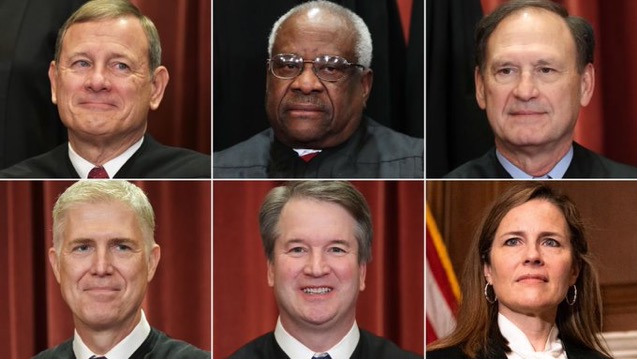The US Supreme Court’s ruling eliminates the consideration of race in college admissions, reshaping the landscape of affirmative action.
Also read | ‘Donald Trump, Ivanka parrot statue’ trends after ex-President’s sexual fantasy about daughter go viral
What is Affirmative Action in College Admissions?
In a groundbreaking decision, the US Supreme Court has ruled that race can no longer be considered a factor in university admissions. This landmark ruling overturns decades-old US policies on Affirmative Action, also known as positive discrimination, and has ignited a fierce debate in the field of education.
Affirmative Action first emerged as a policy in the 1960s with the goal of promoting diversity and equality in educational institutions. It was implemented as a means to address historical disadvantages faced by certain racial and ethnic groups. By considering an applicant’s race as one of many factors in the admissions process, universities aimed to create a more inclusive and representative student body.
However, this latest ruling by the Supreme Court marks a significant departure from the previous approach. The decision has rekindled discussions surrounding the merits and drawbacks of Affirmative Action. Supporters argue that it is a necessary tool to counteract systemic inequalities and foster a more diverse and inclusive academic environment. They contend that considering race as a factor in admissions helps level the playing field for underrepresented groups and provides them with opportunities they may have otherwise been denied.
Opponents, on the other hand, view Affirmative Action as a form of reverse discrimination. They argue that it undermines the principle of meritocracy and unfairly disadvantages qualified individuals solely based on their race. Critics claim that considering race in admissions perpetuates racial divisions and inhibits the progress toward a colorblind society. They advocate for a system based solely on academic achievement and individual qualifications.
President Joe Biden expressed his strong disagreement with the Supreme Court’s decision, emphasizing the need for a new path forward that is consistent with the law. The ruling has triggered a call for reevaluating admission processes and exploring alternative methods to promote diversity without explicitly considering race.
The implications of this ruling extend beyond the realm of education. The decision could have far-reaching effects on other sectors, such as employment, where Affirmative Action policies have been employed to address disparities in the workforce.
As the United States grapples with the aftermath of this landmark ruling, universities and policymakers will need to reassess their approaches to achieving diversity and inclusivity. It remains to be seen how this shift in the legal landscape will shape future admissions practices and the broader quest for equal opportunity in education.







